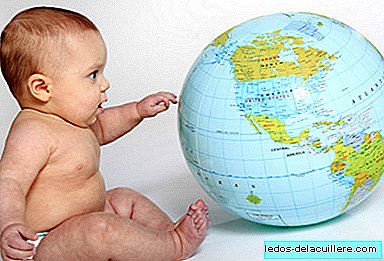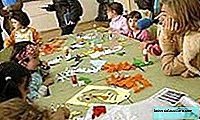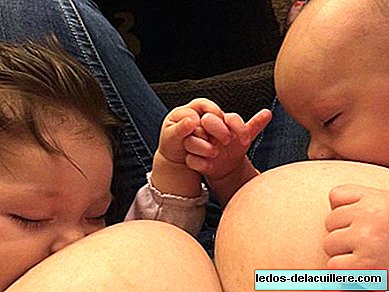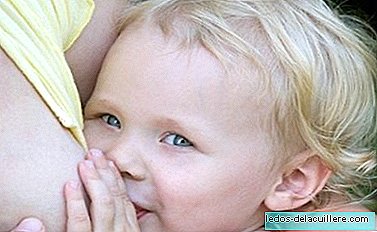
Deep down, babies cry for the same reasons (although sometimes they are a mystery to us) and you have to try to calm them down. But what about the form? Do all babies cry the same? A study seems to show that babies don't cry the same: The cry of an African or Asian newborn does not sound the same as that of a European one.
And, although fetuses probably do not hear anything from outside, they do perceive the mother's voice. Inside the uterus, the baby would assimilate the mother's accent and he will reproduce it at birth, not in conversations but in his way of verbal communication at this stage: crying.
The German anthropologist Kathleen Wermke, from the University of Würzburg, over the years has proposed to know how the mother tongue influences the crying of the newborn. Recently he has carried out new studies that confirm that crying has different accents depending on the origin of the baby, since the little ones learn the sound pattern of the mother's language in the last trimester of their pregnancy.
The baby, despite being immersed in the amniotic fluid, is able to record the rhythm and melody of the mother tongue. Languages that place greater emphasis on high or low sounds that determine meaning, such as Asians and Africans, give rise to babies who cry in a more melodic and singing way.
In contrast, European languages are more flat, since words have more or less fixed meanings regardless of intonation. Well, the crying of babies would also be flatter, with less melodic curves, less acute or severe. And not all European babies cry the same way. When studying the crying of French and German neonates, the team of researchers recorded that the curve produced by the former is downward, from high to low sounds, while the intonation pattern of the latter is opposite.
And although there are lines that ensure that there are certain universal sounds for baby's crying (such as the "Dunstan method" to know why they cry), studies by the German anthropologist would contradict that theory.
I do not know if these investigations have much impact to improve the life of the babies or their parents, but as we have said on other occasions, it is not as important to know why the baby cries as to try to calm him. In this case, it is not so important to know in which language a baby cries, what we will have to do is try to understand what that crying means.
What they do show is the incredible ability to imitate babies, primitive, reflects, since they are born. An immense capacity that begins in the womb and continues to surprise us in the most recent research on the baby's brain.
In short, the crying of the baby would be different according to his mother tongue, with nuances that "by simple hearing" most people would not be able to differentiate. Anyway, remember to take care of the baby's cry and never leave it unattended, I cried in the language I cried.












